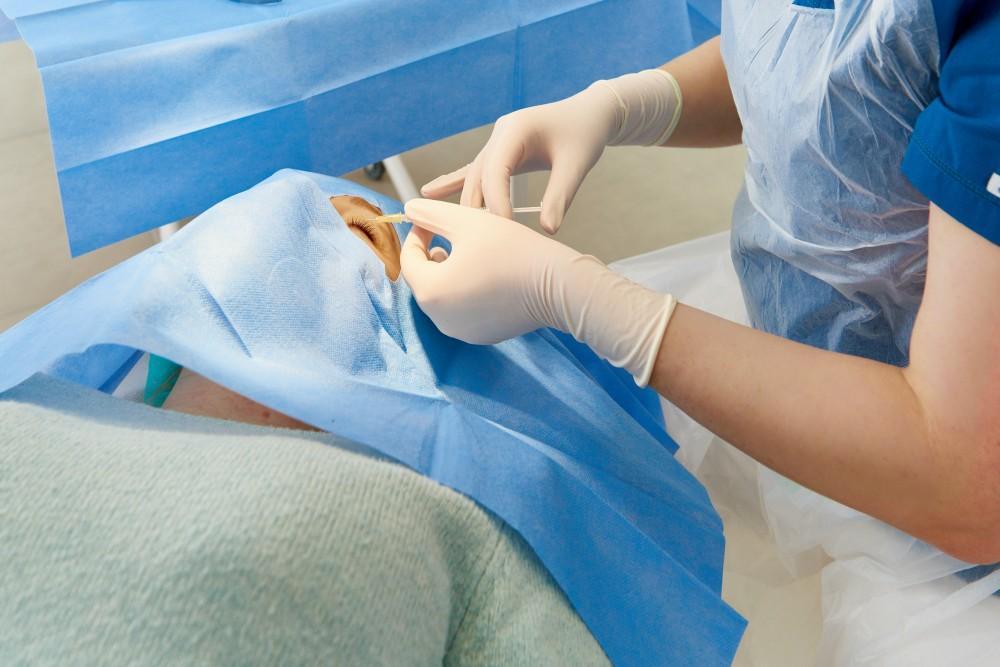
Five Ways Diabetes Can Affect Your Eye Health

Diabetes is a disease where your blood glucose (sugar) levels are too high, causing an array of health problems. Diabetes either occurs because the pancreas doesn’t produce enough of the hormone insulin to shuttle glucose into cells for energy, or because your body doesn’t properly use the insulin it does have.
Unfortunately, diabetes is common. According to the Center for Disease Control and Prevention’s 2017 National Diabetes Statistics Report, as of 2015, more than 30 million people in the US — that’s 9.4% of the population — had diabetes. The majority of cases in adults are Type 2 diabetes, the most preventable form.
At Retina Specialists, our expert team of retinal ophthalmologists is concerned about diabetes, as the disease can cause serious problems with your eye health. If you can learn to recognize the signs of diabetic eye conditions, you’ll know when to get our medical help, and we can preserve as much of your vision as possible. Here’s what you need to know.
The blink of an eye
To understand what can go wrong with your vision, it helps to know the eye’s structure and how it works. The surface of the eye is covered with a tough membrane, and the covering in front is both clear and curved. Light bends as it passes through the clear, curved area, called the cornea.
The light next travels through the pupil (a hole in the iris) and then through a lens that focuses it more finely. Finally, light strikes the back of the eye called the retina.
The retina records the images projected on it and converts those images into electrical signals, which it sends to the brain through the optic nerve. Your brain decodes the signals to produce a visual image.
The center of the retina (less than 2% of its total size) registers vision more clearly than the areas on the periphery. Known as the macula, it’s nourished by blood vessels located both in and behind the retina.
Five ways diabetes can affect your eye health
High blood sugar levels can seriously impact your visual health. In some instances, they can cause blindness, which is why it’s so important to get your eyes checked regularly by a doctor.
Here are five different ways it can impact you.
1. Blurry vision
High glucose can alter your eyes’ fluid levels or cause swelling in the tissues that help you focus, causing blurred vision. This is a temporary condition (though it may take a couple of months to resolve) and goes away when your glucose levels get closer to normal.
2. Nonproliferative diabetic retinopathy
Diabetic retinopathy is a leading cause of blindness, and the condition affects about one in three American adults over age 40 living with diabetes.
In the early stages, blood vessels can weaken, leaking blood into the retina. This can also trigger swelling of the retina. If the macula swells, it’s referred to as macular edema.
3. Proliferative diabetic retinopathy
As diabetic retinopathy progresses, some blood vessels close off, preventing nutrient-rich blood from nourishing the macula. The result is new vessel growth (proliferation) on the retina’s surface, which can lead to anything from visual floaters to scar tissue buildup to a detached retina.
4. Glaucoma
Glaucoma is a group of eye conditions that damage the highly sensitive optic nerve. High blood sugar levels can increase the pressure inside your eye by preventing proper drainage, leading to nerve damage. Glaucoma is a major cause of blindness in people over 60.
The problem is, many forms of glaucoma have no warning signs, and you might not notice a change in your vision until the condition reaches an advanced stage. But once the vision is lost, it’s gone forever. That’s why it’s so important to get regular eye exams.
5. Cataracts
Cataracts are a clouding of the eye’s lens. Anyone can develop cataracts, and they’re very common as you age, but people with diabetes often get them earlier, and they worsen faster.
If you have diabetes and you don’t get regular eye exams, your vision is at risk. Contact Retina Specialists to set up an appointment. You can call any of our five Texas offices — in Dallas, DeSoto, Plano, Mesquite, and Waxahachie — or book online.
You Might Also Enjoy...


How Aging Impacts Retinal Health

Vitrectomy: The Outpatient Surgery That Can Save Your Vision

When to Seek Treatment for Eye Trauma

What Happens During a Diabetic Eye Exam?


